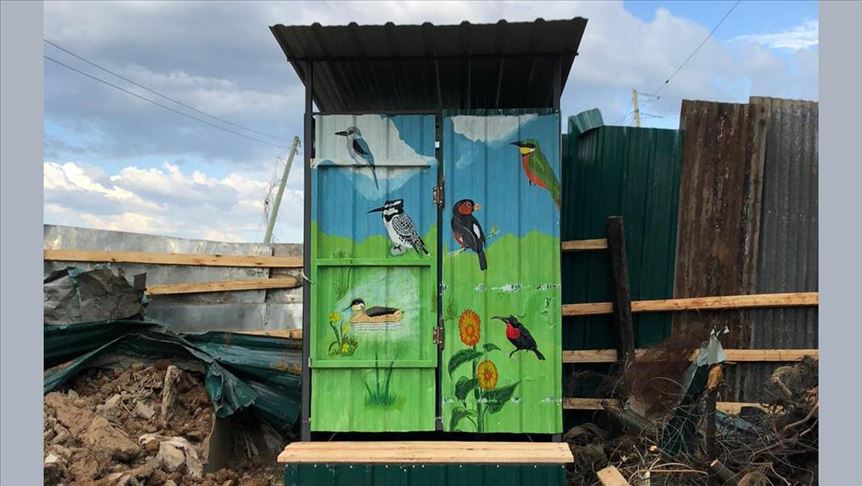
NAIROBI, Kenya
Although many poor households across the world have been treating toilets as an extraneous requirement, the absence of it is causing 432,000 diarrhea deaths annually, according to a UN document.
An innovative project launched by East African country Kenya in its Western Kisumu County to convert pit latrines with bio-toilets has provided hope and inspiration to tackle global sanitation crises on World Toilet Day that is celebrated on Nov. 19 every year.
Closer to Lake Victoria, the largest water reservoir in Africa, the region had no proper sewer systems, and locals mostly fishermen had to either dig pit latrines or dump human waste on the fresh waters of the serene lake.
Speaking to Anadolu Agency, Dominic Kahumbu Wanjihia, a Kenyan who has founded a firm called Biogas International’s said the biggest advantage of these new toilets called Merry Loo is that they can be installed above the ground.
“The pit latrines are very dirty and extremely pathogenic. The new latrine features a multi-chamber digester to ensure total liquidation of solids and complete fermentation, which also means the system never fills up and never requires emptying,” he said.
Also, he said that since no digging is involved, they are economical.
Over the years, the pit latrines have polluted groundwater sources threatening human health especially in places like Kisumu where people rely on wells, rivers, and Lake Victoria for drinking water.
According to Wanjihia, the toilet can be made from recycled and easily accessible local materials such as iron sheets, sisal, thatch, or recycled plastics. The most important part of the digestor can be made from containers or drums.
The chain of bio-toilets can be developed to produce biogas which can be used in cooking. It produces a bio-fertilizer as a byproduct which is transported through French drains to grow plants. Further, a seven-stage fermenter ensures the irrigation water is safe for use due to complete fermentation of human waste.
Kahumbu is now engaged in training the youth to make the digesters to give them a source of living.
“We want to train the youth to make the toilet so they can develop small business and supply them to the millions of households that require them countrywide, “he said.
According to the ministry of health, an estimated 14% of Kenyans practice open defecation that means that approximately six million Kenyans lack access to proper sanitation facilities.
Anadolu Agency website contains only a portion of the news stories offered to subscribers in the AA News Broadcasting System (HAS), and in summarized form. Please contact us for subscription options.





